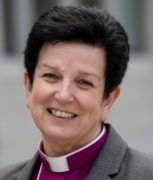You will know the phrase: “You can’t teach an old dog new tricks”.
It is commonly used to describe older people who are set in their ways and so unable to adapt or learn something new. Sometimes the so-called wisdom in this phrase is extended to cover a generation.
Younger people are often considered to be teachable and adaptable. They are generally thought to be the ones who might be best placed to take the lead in a changing society, whereas older generations may lag behind or be resistant to change.
Over the last year there have been many instances of older people learning new things and adapting to the changing circumstances during the pandemic. These challenge assumptions about what is possible for the baby boomer generation in the United Kingdom.
For example, before the pandemic many older people were not spending much time online, save maybe for Skype calls or Face Time with family members.
However, their use of the internet has expanded throughout the last months. Many have joined online choirs, recorded videos, started to write books or do research.
A baby boomer myself, I have been watching YouTube videos as a way of teaching myself new skills. I am a person who has always enjoyed making things with my hands – now I am learning how to make gifts for friends.
Creativity doesn’t stop as we age
I find all of this creative online activity very encouraging. How wonderful that people, often well into their 80s, are busy acquiring new skills or interests. All of this learning has something to say about the nature of human creativity, which is a fundamental part of who we are and so not discarded or ignored once we get to a certain age. There might be times when we hesitate to embrace change, but maybe this is related to inadequate support and encouragement. Over the last year, when so many of us have had time to learn to do things differently, there has also been the support and encouragement readily available to help us.
There are many benefits in aging, but one of the most important is the possibility of learning what really matters in life
This suggests to me that the older generations have significant roles to play in the changing society that is emerging post-pandemic. In fact, if those who are older are excluded, then whatever starts to emerge is very likely not to be fit for purpose, and society as a whole will be no better off than it was before. We cannot assume that older people will be either conservative or resistant to change. In fact, we should expect the opposite.
There are many benefits in aging, but one of the most important is the possibility of learning what really matters in life. As we age, we better understand the importance of relationships, and how the need for care and personal support changes through life.
During the pandemic, there have been many folk of my age who have been concerned about the care of very elderly parents, and at the same time been involved in supporting those in younger generations who have been struggling to continue to work or be schooled. These experiences highlight the need for careful decision making. If we have only so much of any resource, not just money but also time, then how should we use what we have? There is important understanding that comes with age, if decisions have to be made about who or what must come first.
Older generations can contribute to the post-pandemic future
As society slowly starts to open up again, the older generations will be among those who have time and energy to give to reshaping society. After a long period of limited activity, the volunteer sector will remerge, hopefully invigorated by volunteers having acquired new skills and competencies. Much charity work is driven by those with time to donate to supporting others. This is especially true in churches and other faith groups, where those who are available day-to-day are often those who are older. As communities begin to meet again, these groups will be at the heart of new initiatives.
As the weeks and months ahead open up for us all, it will be essential that people who have reflected well on life and also have creative energy are contributing where they can.
Younger generations certainly have lots of vision and passion, but let’s look to include as many as possible of the generations that have shown themselves to be well able to learn ‘new tricks’. Let’s take time to hear what older people have to say about what is important and how we should do things in the post-pandemic world.
The Rt Rev Anne Dyer is Episcopalian Bishop of Aberdeen and Orkney and Scotland’s first female bishop











